#pov help
Explore tagged Tumblr posts
Text










Day 49– Riju’s Guestroom
(Ambassador Rauru never meant to get attached to the twin chieftains. The one that becomes the Demon King accuses him of forgetting his own history— the other, concerned with her people’s safety, bitterly capitulates to Hyrule’s demands.
Perhaps a kinder peace could have been achieved, if only Rauru chased after Ganondorf like Naborus on that fateful day. It didn’t matter, in the end. Time has ground every decision into indistinguishable dust, until all that’s left is echoes and ghosts.)
(This self indulgent totk rewrite au is called Familiar Familiar! It all starts when Zelda doesn’t get sent back in time, and now has a whole new batch of tragic tragic lore.)
((Wanna support me? Check out my patreon, with my throw away sketches and references! Remember to use web or android folks, apple charges 30 percent tax.))
#critdraws#familiar familiar au#lonks diary#zelda#link#loz#botw#totk#tears of the kingdom#breath of the wild#ganondorf#naborus#art#rauru#loz au#tloz#the legend of zelda#legend of zelda#gerudo#sand seal#zelda au#totk ganondorf#ancient sage of lightning#totk rauru#totk link#totk zelda#not every sage is happy to see rauru#naborus is here because mineru begged her to help#and because she feels some level fo responsibility in stopping ganondorf#oohhhh sibling foils ooohHhhhh (pov accidentally crackshipped naborus and mineru and now i cant stop thinking about them)
5K notes
·
View notes
Text

“c’mon, megumi. tell me what’s botherin’ ya.” satoru pouts at megumi, his arm thrown around the boy’s shoulders. you watch the scene unfold with a tense smile.
megumi was exhausted from school, training and so much more. the teenager’s patience was wearing thin. especially with satoru almost pressuring him into telling you both what’s weighing on his mind. when all he wants is to be left alone at the moment.
the tone satoru’s using to talk to megumi only pisses the high schooler off more and more. it’s fatherly. like he’s still the little child satoru took in and cared for. it pissed megumi off, along with everything else;
“you’re not my dad, so stop fucking acting like you are!”
you freeze. satoru freezes. megumi freezes. time freezes. the silence was deafening. no one was moving. your eyes flicker over to satoru’s and your heart shatters in a million pieces.
satoru’s hurt. so hurt. it’s visible and he’s not hiding it — not hiding it like he usually would behind a wide grin. his blindfold and glasses aren’t there to hide the way his face falls either.
“i know.” satoru whispers. his voice lost its cheery tone, his eyes have lost their spark. the sorcerer slowly distances himself from megumi. a bitter chuckle leaves his lips. a futile attempt to hide his shaky voice, “i know.”
all you could do is stand there in shock. megumi doesn’t know what to do after his little outburst either. and satoru. . . well, satoru is the first one out of the room. you hear his breath hitch as he walks past you. you see his eyes twitch. the strongest, in tears.


#me when i see all those pov’s on tiktok and couldnt help but write this down rq#jjk x reader#gojo x reader#gojo satoru x reader#jjk x you#jjk angst#gojo angst#ok bye LMAO
13K notes
·
View notes
Text

#smallishbeans#joel smallishbeans#zombiecleo#wild life smp#trafficblr#it was very sweet how they all helped each other with answers but i lowkey wish more of them lied too#tho maybe some were lying too i just haven’t seen those povs!
1K notes
·
View notes
Text
"Will you help me ?"
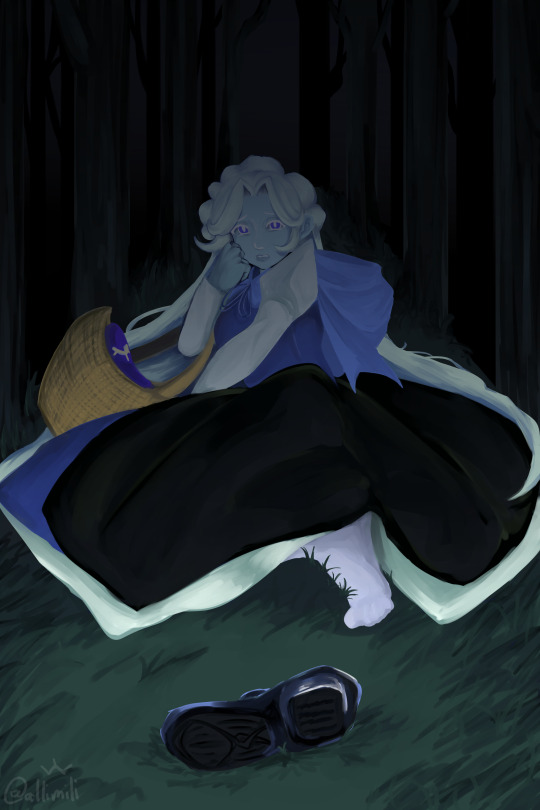
\\TW: more eyes

#seems like youve been tricked by shadow milk cookie#and yes its you the pov of this#“will you help me dear stranger?” bro knows every info about you ahh#anyways its up to you if he kills you or not#but its most likely he/she will keep you#shadow milk cookie#shadow milk cookie x reader#crk fanart
913 notes
·
View notes
Text
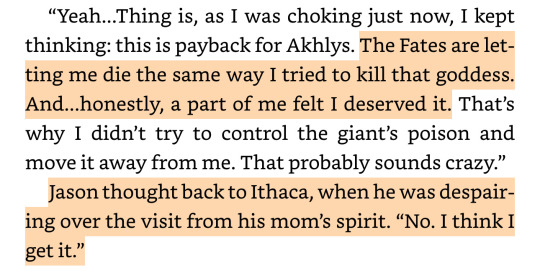
yeah so this was insane
#i feel like too many people reduce this interaction to jason being like ‘lol same’#but idk :/#this chapter is from jason’s pov#and leading up to it he’s like ‘people keep walking on eggshells around me bc of the the michael varus stab wound’#and he hates it so when he goes on deck to help out with the storm#everyone’s like wtf except for percy#and jason states how much he appreciated percy not treating him like a sick kid#and i feel like it’s echoed in this sentiment where jason could say so many things like#‘you should never feel that way’ ‘im here if you need anything’#but he doesn’t make percy feel alone in his desire to just…. end it all#which ik for some people that doesn’t work but you’re not a character in hoo and percy is dealing with so much guilt#and he can’t tell annabeth bc she’s a main aspect of that guilt#and he doesn’t wanna guilt her more and he feels ashamed and when he describes this he feels weird for feeling it#so having jason this tough guy be like ‘yo i understand it bc i felt the same way#that’s gotta mean a lot to percy#also insane how jason who also struggles to display vulnerability#allows it in one of few times in this moment just so percy this guy he’s supposed to be jealous about#feels comforted and not alone in his guilt and shame#and also it’s just insane how jason’s wanting to kay em ess does not get talked about AT ALL#and just seeing his mom and the pressure of new rome getting to him#like this scene is insane and i’ll never shut up about it#also ignore me i’m just finishing my reread of hoo that took all summer#jason grace#percy jackson#pjo#ashla.txt
1K notes
·
View notes
Text

caught up on wild life today
#still need to go thru some other povs but im a gem is great guy#geminitay#wild life smp#wild life spoilers#3rd life#idk tags i dont usually mcyt post😔but i cant help myself gems skins are always so cute#ive drawn designs in my physical sketchbook but i dont think ive ever drawn her digitally/coloured before!
600 notes
·
View notes
Text
Watson and Mary Morstans relationship in The Sign of Four is actually so fucking funny bc the whole time Watson is like "noooo wtf 😟 my crush is about to become a billionaire fuck my baka life 😭😭😭 she's gonna think I'm a gold digger 🤦🤦 time to isolate myself from her 😢" meanwhile Mary's like "*licks lips like freaky sonic* I'm going to sugar mommy this sad AO3 author SO hard- 😈🥵🥴🙏 why the fuck is he not making eye contact with me 😐" meanwhile Holmes is like "i wish theyd invent crack faster "
#just like all the asides watson does about future Mary telling him her pov of the story#the way she fr got annoyed when he wouldnt hold her after she started theatrically crying in the carriage alone with him#like LMFAO#also right in the start when hes about to leave and shes like holy fine shyt i need that lol oops i mean need that oops i mean need HELP#she knew what she wanted the SECOND she saw it#i feel like im the only one who picked up on how FREAKED out she was#like blah blah blah yeah watson was fast but shes the one who said yes#sherlock holmes#john watson#acd canon#acd holmes#mary morstan#mary watson#johnary#the sign of four#warstan#sherlock holmes fandom#sherlock holmes canon#dr john watson#john watson x mary morstan#stuff noa says#tw drugs
433 notes
·
View notes
Text
PULL THE LEVER KRONK !!

GOING OUT WITH A BANG 💥💥💥
#minecraft sos#sos smp#smallishbeans fanart#ldshadowlady fanart#solidarity gaming fanart#help these 3 were my only povs for sos and theyre all gone 😭
3K notes
·
View notes
Text
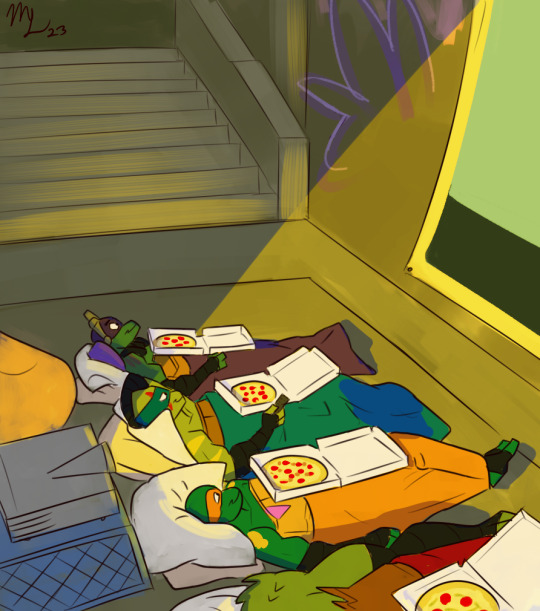
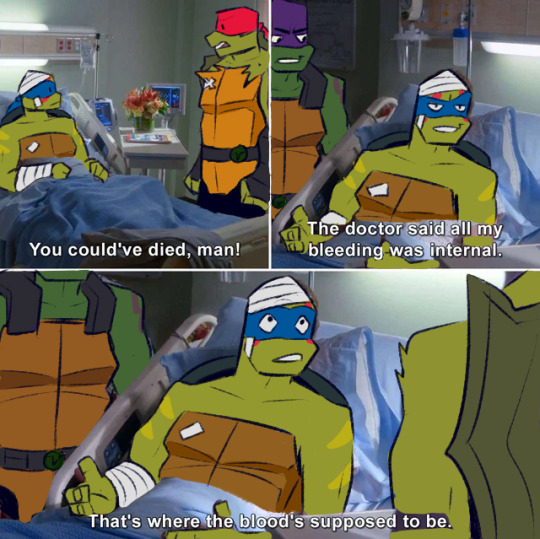

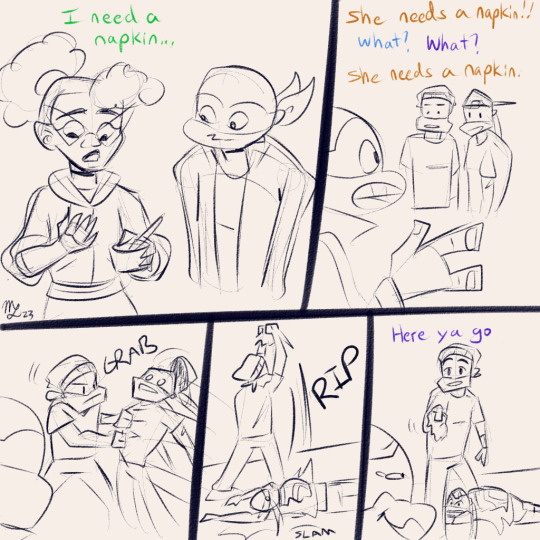
today i offer you tmnt art. tomorrow???? ¯\_(ツ)_/¯
#half a year ago if you would've told me i was gonna get obsessed with teenage mutant ninja turtles i would've laughed. but here we are.#rottmnt#rise of the tmnt#rottmnt leo#rottmnt donnie#rottmnt mikey#rottmnt raph#rottmnt april#pizza time with the boys!#im gonna have to censor the hospital one to post on insta so that'll be fun#pov ur friend never got her mystic pizazz for her project so she still needs your help instead#the comic is from a stupid tiktok
3K notes
·
View notes
Text


An extremely embarrassing screencap redraw for both me and Sanji
#one piece#sanji#POV you are pudding and you have the worst taste in men imaginable#descriptions in alt text#I need to draw this from Zoro's POV too and he's just a drowned fucking rat#edit: HELP ME WHY WOULDN'T IT LOAD HASDMGSDHG
4K notes
·
View notes
Text
pov: you’re the poor sap stuck in the ring with the Red Angel

I don’t explore his unhinged side nearly enough but like, doing so would mostly involve drawing fight scenes. So maybe that’s why, because I cannot draw a fight scene for the life of me ._.
#this was supposed to be a doodle#send help#rottmnt#mutant manhunt au#my art#rottmnt raph#pov: ur about to meet god#I’m kinda digging the more realistic style but I miss my chunky line art jdhghd
3K notes
·
View notes
Text

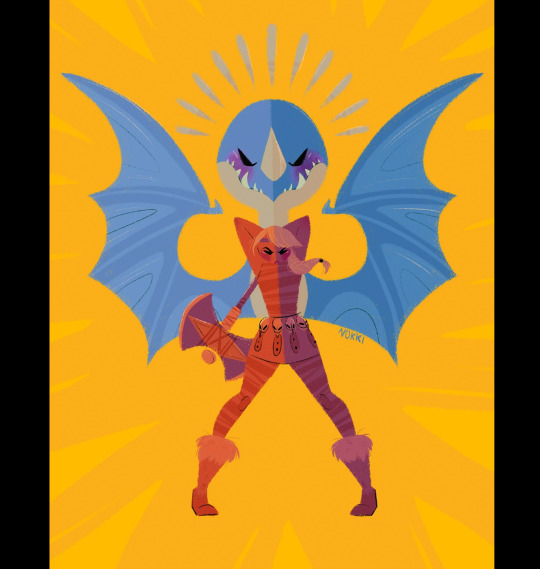


As a long time httyd fan who has been heavily involved in the fandom since the first movie and who has spent years working in the animation industry, I’d like to share my thoughts on the new httyd movie. Keep in mind, this is just my personal opinion and it's completely fine if you disagree with me. I just want to say a little something about all this that really bothers me.
The core reason that Dreamworks and Universal made this film is that it’s a quick and easy cash grab for them. Thats it. They don’t care about telling a good story or making a “better” version of the original movie for fans or even having an accurate portrayal of the characters/story. It’s purely about money. They know that fans of the original film will go see this movie, whether it’s good or bad. And those guaranteed ticket sales are all that matter to the studios. And with Universal, it has the added bonus of being a cheap promotional and merchandising opportunity for the new HTTYD land in Orlando that opens around the same time that the film is premiering in theaters.
And to help the studios make even more money out of this, they are using non-unionized VFX companies around the world to make this film, so that they can get cheaper labor and push the artists to do more that would be against American union standards. The same thing has probably happened with the costuming and fabrication for the filming, hence why the costumes look un-weathered and the sets look cheap. They don’t want to pay for the extra time and effort that it would take to make the practical bits of the production look good.
On top of all this, Dreamworks has already announced that they’re shutting down all their in-house animation projects in favor of using AI and outsourcing projects to cheaper international non-union studios.
With all this in mind, I just can’t support this film and I will not be seeing it in theaters. And I hope that others will do the same.
The only way to stop all these horrible “live action” remakes (which are actually just realistically animated remakes) is to not buy tickets to see them. Money is all that matters to these studios, and if they don’t make any money off of it, then they will stop and try something different. Maybe they'll even go back to focusing on original stories!
That’s the power that we hold as audiences. Our wallets help drive the decisions that the executives make. So support unique storytelling and gorgeous cinematography in movies. Support indie films. Support animators as they're fighting for fair pay and better contracts. But don't support a mediocre shot-for-shot remake riding on the coattails of an already successful film.
And I just want to wrap all this up by saying I have absolutely no hate towards anyone that has worked on the new film. Toothless looks incredible and I know the artists and creatives involved in this project did the best they could with what they were given.
But I also know that those same artists have so many more brilliant ideas that they would’ve loved to be given the creative freedom to do. I just wish hollywood would be willing to take a chance and let them do it.
#they could've made a film following the plot of the httyd books or even a different pov of what happened in Berk from a vikings view#those would've been much better options if they really wanted to utilize this IP in a live action or realistic animation format#but they chose the cheap option of literally copying an already successful film and throwing actors in there to say its new and different#this whole thing bugs me so much#i hope you guys will excuse this rant but I hate what hollywood has become and I hate that creatives are forced to make this junk for them#all while fearing for their jobs because of rampant layoffs#please help put an end to hollywood abusing creatives in the way that they are and don't watch this movie#httyd#how to train your dragon#hiccup#toothless#movie#live action#dragon#astrid#stormfly#cosplay#art#artists on tumblr
797 notes
·
View notes
Text
I wish there was an unlike button in Tumblr
#female rage#female manipulator#female hysteria#female writers#girlblogging#girl blogger#blog#girlcore#im just a girl#this is what makes us girls#this is a girlblog#this is girlhood#this is a joke#hell is a teenage girl#lana unreleased#lana del ray aka lizzy grant#pov#pinterest#relatable#coquette#aesthetic#fypage#girlhood#algorithm#fypシ#girl help#lana del rey#tumblr milestone#2014 tumblr#vampirecore
208 notes
·
View notes
Text
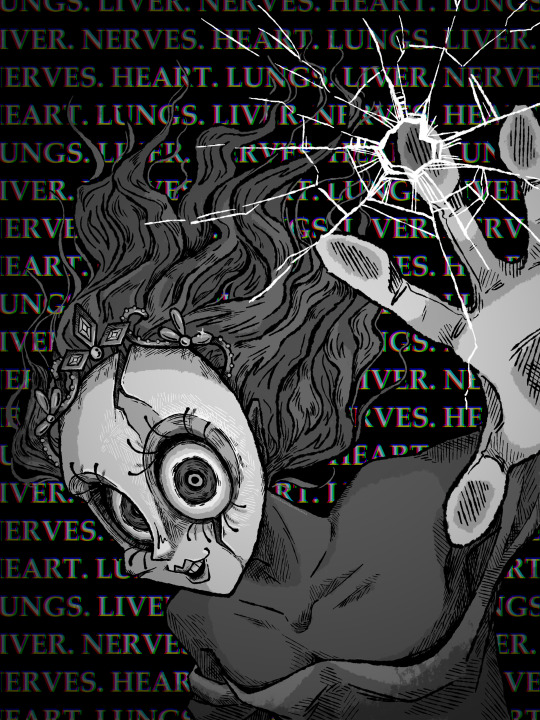
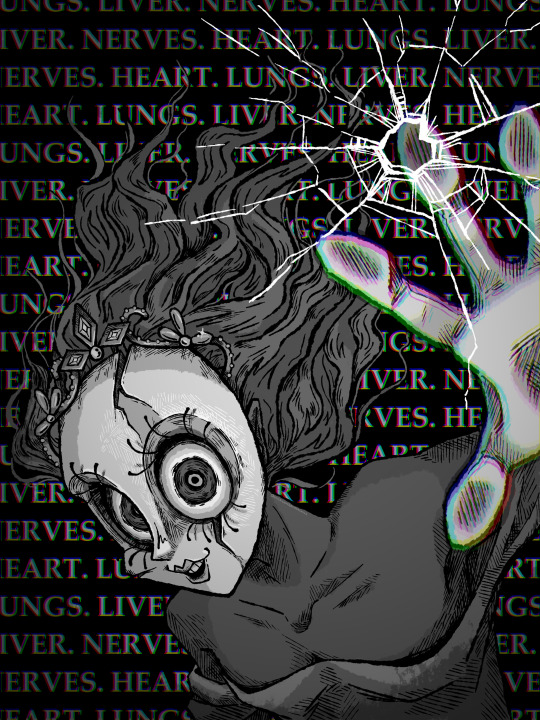
HEART. LUNGS. LIVER. NERVES. HEART. LUNGS. LIVER. NERVES. HEART. LUNGS. LIVER. NERVES. HEART. LUNGS. LIVER. NERVES.
#HEART. LUNGS. LIVER. NERVES.#POV The Nightmare breaks your concentration and Slays You#i mostly drew the nightmare because its where i met voice of the paranoid#i love voice of the paranoid a lot#i love that the terrified voice in my head gets to be Helpful. and ACT#obviously incredibly prime subject to project onto#anyways i really like this game and when i can find the time and energy ive been trying to find all the paths and achievements by myself#so please enjoy my first post of the new year#i will not promise there will be more#i couldnt decide if i like the colors for the hand breaking our concentration so im giving yall both#voice of the paranoid#slay the princess#the nightmare#my art#artists on tumblr#digital art#couchcouchcouchcouchart
2K notes
·
View notes
Text

POV they just told their da shixiong on you
#pov you’re boutta get your ass beat by a 4 ft of kickass#the image of these two tall muscular demons struggling in battle and turning to the tiniest member in their group for help is so funny to me#swk: I heard you were bullying my brothers >:T#and he’s like half their size glaring up at you#would shit bricks personally#journey to the west#jttw sun wukong#sun wukong#journey to the west fanart#digital art#my art#sorry I haven’t posted anything substantial in a while#it’s my last semester and I’m really tryna stay on top of work so I can finally graduate or2#got this joke out tho lol#can you tell I really love my design of swk#I’m gonna pin that design cuz I want more people to look at it#I’m real proud of it sorry#oh right#zhu bajie#sha wujing#jttw zhu bajie#jttw sha wujing#oughhhh my back hurts… (<= old man)
742 notes
·
View notes
Text
Okay but have we thought about how scary odysseus interacting with the gods /his knowledge about such things it must have been for his crew?
Its well known that odysseus is Athenas favorite, even before the Trojan war. But what does that look like from the outside? Are their conversations in some other plain? Does odysseus sometimes just glaze over and you just have to trust its a god speaking to him and not aome other fit? Out in the open? During the war odysseus was frequently doing really bizarre things on Athena's say so. Bit you also know your captain is a freak and lier so which is it this time? The gods will or odysseus just tucking with you? There's a little wariness there. But it's well known. And been like this forever.
But then you start encountering more monsters. More gods. They all talk to your captain. Your captain stops sleeping. Your go between for you and the captain starts committing crimes against the captain, starts bad mouthing him. More of your friends have died then in ten years of war. And every other day there's a new god talking to your captain. What mortal man has the interest of this many gods? What mortal man can get up in the gods faces to yell at them. What mortal man has the powers to overcome the witches they encounter the power to over turn gods spells? What mortal man's tongue is so gilded he convinces these powers to help them? And doubt comes creeping in.
#the odyssey#epic the musical#odysseus#Odysseus's crew#outsider pov my beloved#But no seriously what does odysseus's life and causal interactions with the gods look like from the average man#Is your captain being weird because of the gods or because he's fucking with you and is about to laugh in your face#It's 50/50 either way and how do you tell#I have many thoughts and feelings about odysseus's unnamed crew#Typing this out I just realized that odysseus's crew don't know how he got circle on their side#All they know is he waltzed into her palace was not affected by her magic and then convinced her to turn everybody back and help them#The conspiracies that must exist around this man#Also odysseus got Athens blessing as a child how did he change after that?#How did eury and pilties feel about their interactions being spied on by a goddess?
720 notes
·
View notes